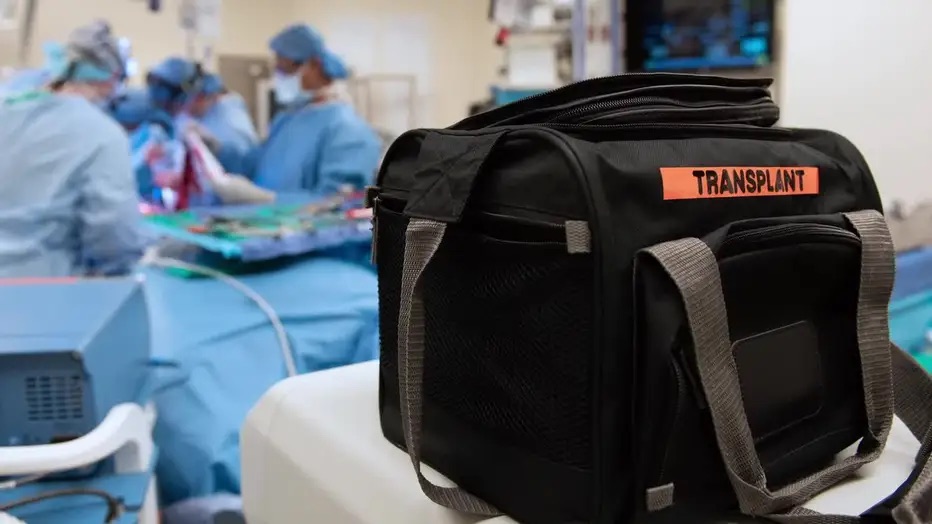
Courtesy Fox 4 News
MANSFIELD, Texas — A Groundbreaking Technology Offers Hope to Lung Transplant Patients
A Mansfield man is among the first to benefit from an innovative technology that grants doctors more time to perform delicate lung transplant surgeries, a breakthrough that has already changed the lives of patients across the country.
This cutting-edge technology, known as “lungs in a fridge,” has made a significant impact by allowing lung transplants to be performed with greater precision. To date, approximately 12 patients have undergone successful double lung transplants in the U.S. with the help of this technology, including a North Texas father who has spent nearly a decade battling stage 4 colorectal cancer.
A New Lease on Life for Tadd Crosslin
Tadd Crosslin, a 49-year-old avid skier and golfer from Mansfield, had always been an active and adventurous individual. However, his vibrant life came to a halt when he was diagnosed with stage 4 colorectal cancer at age 40. To make matters worse, the cancer metastasized to his lungs, pushing him to the brink of losing his life.
In September 2024, Crosslin underwent a double lung transplant at Northwestern Memorial Hospital in Chicago. Despite the critical nature of the surgery, Crosslin’s journey was far from easy.
“The procedure had complications during the removal of my lungs,” Crosslin recalled. “The surgeons had to work harder than expected, as the cancer had affected them extensively.”
Dr. Ankit Bharat, a leading surgeon at Northwestern Medicine Canning Thoracic Institute, reflected on the challenge. “This was one of the most complex surgeries of my career,” he said. “The lungs were in incredibly poor condition, the worst we’ve seen in years.”
But thanks to an advanced technology — lung refrigeration — Crosslin’s medical team was able to perform the procedure with greater efficiency. The refrigeration system, which has been successfully implemented at Northwestern Memorial, allows lungs to remain viable for up to 18 hours, a significant improvement over the previous four-hour window provided by ice storage.
Revolutionizing the Transplant Process
The lung refrigeration technology was initially pioneered in Canada and Europe before being adopted by U.S. medical institutions. The system enables doctors to transport vital organs across greater distances without risking damage, giving patients like Crosslin more hope for a successful transplant.
For Crosslin, the results were life-changing. “I was told I would need to stay in the hospital for 2-4 weeks after the surgery, but I was out in just nine days,” he shared. “I also completed my rehabilitation ahead of schedule.”
He credits his remarkable recovery to his unwavering support network. “It truly takes an army for me to be here today — from my family and friends to the medical team and those who prayed for me,” Crosslin said. “And I will forever be grateful to the donor who made the ultimate sacrifice, giving me the chance to live.”
Crosslin will remain in Chicago for ongoing monitoring until he is cleared for travel. Once his recovery is fully complete, he looks forward to hitting the slopes with his family — a long-awaited return to the life he loves.




